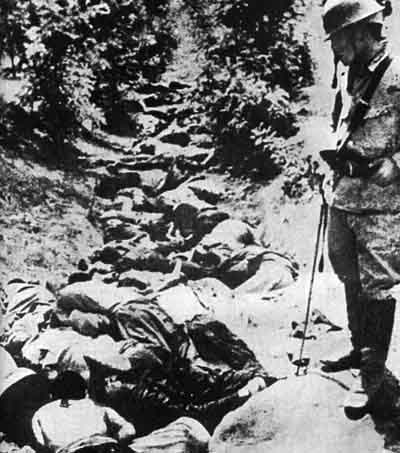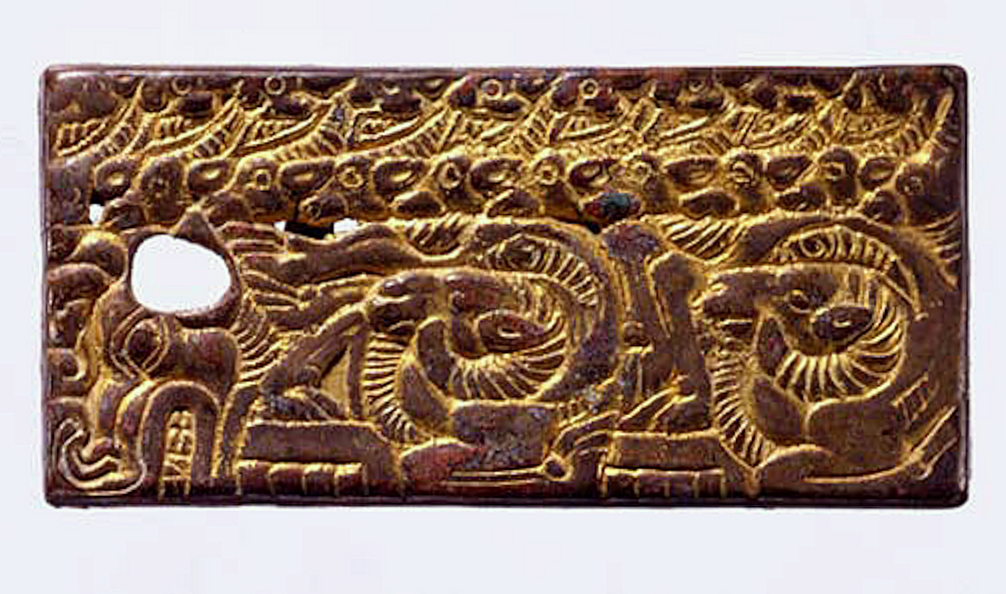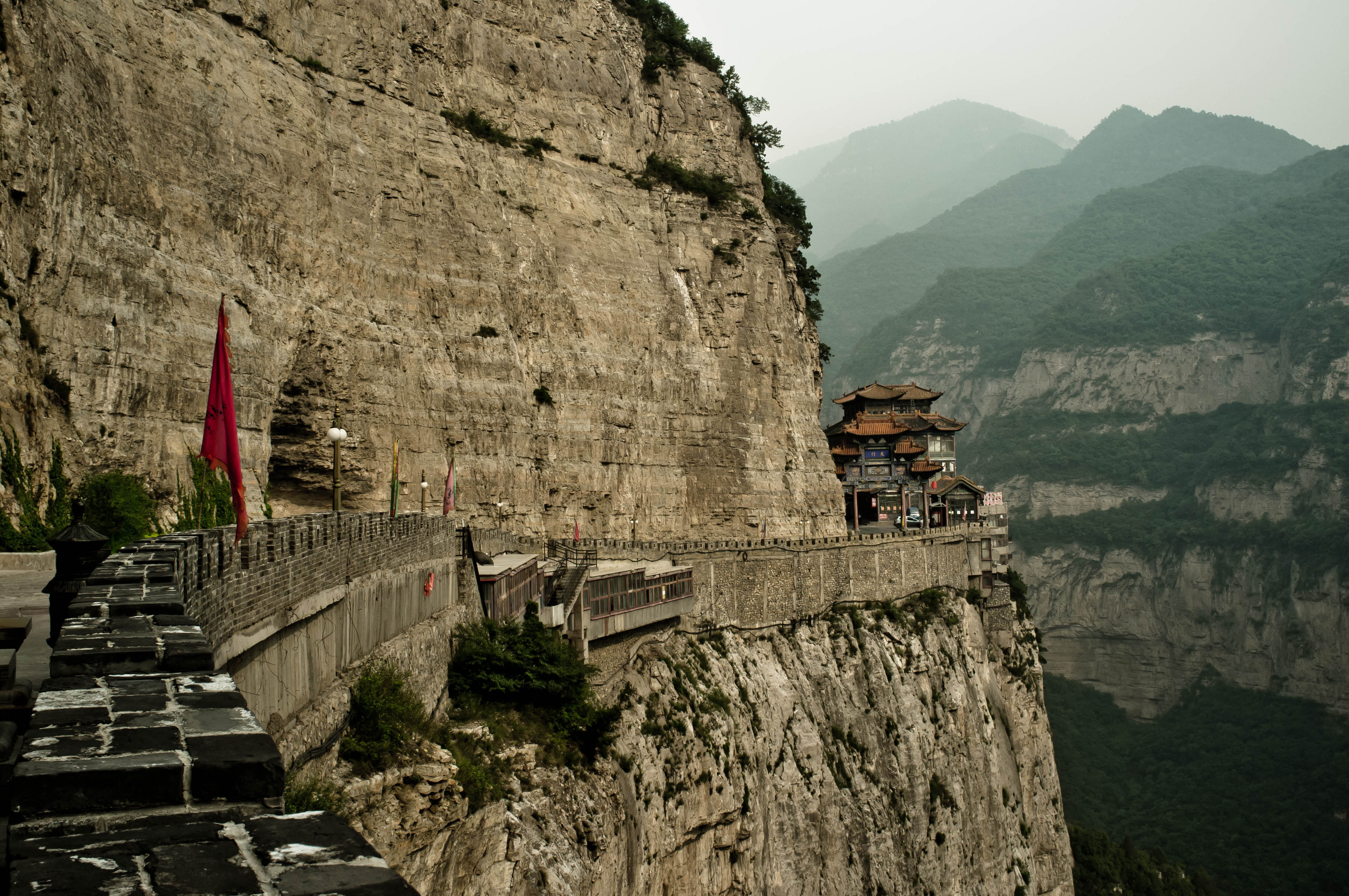|
Zhang Cheng (Han Dynasty)
Zhang Cheng (died 215), courtesy name Gongxian, was an official serving under the warlord Cao Cao during the late Eastern Han dynasty of China. Life Zhang Cheng was born in the Eastern Han dynasty in Xiuwu County (), Henei Commandery (), which is present-day Huojia County, Henan. His grandfather, Zhang Xin (), served as Minister over the Masses () in the Han imperial court, while his father, Zhang Yan (), served as Grand Commandant (). He had an elder brother, Zhang Fan, who was as equally well known as him. Unlike Zhang Fan, who turned down invitations to serve in the Han government, Zhang Cheng accepted an offer to become a government official after he was nominated on grounds of virtuous conduct. He started out as a Consultant () and was later promoted to Commandant of Yique (). In 189, after the warlord Dong Zhuo seized control of the Han central government and held the figurehead Emperor Xian hostage, Zhang Cheng wanted to gather like-minded people to rise up against Dong ... [...More Info...] [...Related Items...] OR: [Wikipedia] [Google] [Baidu] |
Zhao Commandery
Zhao Kingdom or Zhao Principality ( zh, 趙國) was a kingdom or principality in early Imperial China, located in present-day North China. The kingdom was created in 203 BC and granted to Zhang Er (張耳), a follower of Emperor Gaozu of Han. The kingdom covered five Qin-era commanderies, including Handan (邯鄲), Julu (鉅鹿), Qinghe (清河), Hejian (河間) and Changshan (常山). In 199 BC, however, because of an failed assassination attempt on the emperor by several of his ministers, Zhang Ao, son of Zhang Er, was demoted to marquess and this kingdom became extinct. Liu Ruyi, Prince Yin of Zhao, a young son of Liu Bang (Emperor Gao of Han) and a favoured concubine, Consort Qi, was made Prince Yin of Zhao by Emperor Gao in around 198 BC. Shortly after the death of the emperor in 195 BC, Prince Yin of Zhao died as a result of poisoning in a plot instigated by the emperor's widow, Empress Lü, to ensure he would not become emperor. Ruyi was succeeded by Liu You, son o ... [...More Info...] [...Related Items...] OR: [Wikipedia] [Google] [Baidu] |
Chang'an
Chang'an (; ) is the traditional name of Xi'an. The site had been settled since Neolithic times, during which the Yangshao culture was established in Banpo, in the city's suburbs. Furthermore, in the northern vicinity of modern Xi'an, Qin Shi Huang of the Qin dynasty, China's first emperor, held his imperial court, and constructed his massive mausoleum guarded by the Terracotta Army. From its capital at Xianyang, the Qin dynasty ruled a larger area than either of the preceding dynasties. The imperial city of Chang'an during the Han dynasty was located northwest of today's Xi'an. During the Tang dynasty, the area that came to be known as Chang'an included the area inside the Ming Xi'an fortification, plus some small areas to its east and west, and a substantial part of its southern suburbs. Thus, Tang Chang'an was eight times the size of the Ming Xi'an, which was reconstructed upon the site of the former imperial quarters of the Sui and Tang city. During its heyday, Chang'an w ... [...More Info...] [...Related Items...] OR: [Wikipedia] [Google] [Baidu] |
Shandong
Shandong ( , ; ; alternately romanized as Shantung) is a coastal province of the People's Republic of China and is part of the East China region. Shandong has played a major role in Chinese history since the beginning of Chinese civilization along the lower reaches of the Yellow River. It has served as a pivotal cultural and religious center for Taoism, Chinese Buddhism and Confucianism. Shandong's Mount Tai is the most revered mountain of Taoism and a site with one of the longest histories of continuous religious worship in the world. The Buddhist temples in the mountains to the south of the provincial capital of Jinan were once among the foremost Buddhist sites in China. The city of Qufu is the birthplace of Confucius and was later established as the center of Confucianism. Confucianism developed from what was later called the Hundred Schools of Thought from the teachings of the Chinese philosopher Confucius. Shandong's location at the intersection of ancient and modern n ... [...More Info...] [...Related Items...] OR: [Wikipedia] [Google] [Baidu] |
Jiangsu
Jiangsu (; ; pinyin: Jiāngsū, Postal romanization, alternatively romanized as Kiangsu or Chiangsu) is an Eastern China, eastern coastal Provinces of the People's Republic of China, province of the China, People's Republic of China. It is one of the leading provinces in finance, education, technology, and tourism, with its capital in Nanjing. Jiangsu is the List of Chinese administrative divisions by area, third smallest, but the List of Chinese administrative divisions by population, fifth most populous and the List of Chinese administrative divisions by population density, most densely populated of the 23 provinces of the People's Republic of China. Jiangsu has the highest GDP per capita of Chinese provinces and second-highest GDP of Chinese provinces, after Guangdong. Jiangsu borders Shandong in the north, Anhui to the west, and Zhejiang and Shanghai to the south. Jiangsu has a coastline of over along the Yellow Sea, and the Yangtze River passes through the southern part ... [...More Info...] [...Related Items...] OR: [Wikipedia] [Google] [Baidu] |
Xuzhou
Xuzhou (徐州), also known as Pengcheng (彭城) in ancient times, is a major city in northwestern Jiangsu province, China. The city, with a recorded population of 9,083,790 at the 2020 census (3,135,660 of which lived in the built-up area made of Quanshan, Gulou, Yunlong and Tongshan urban Districts and Jiawang District not being conurbated), is a national complex transport hub and an important gateway city in East China. Xuzhou is a central city of Huaihai Economic Zone and Xuzhou metropolitan area. Xuzhou is an important node city of the country's Belt and Road Initiative, and an international new energy base. Xuzhou has won titles such as the National City of Civility (全国文明城市) and the United Nations Habitat Scroll of Honour award. The city is designated as National Famous Historical and Cultural City since 1986 for its relics, especially the terracotta armies, the Mausoleums of the princes and the art of relief of Han dynasty. Xuzhou is a major city among t ... [...More Info...] [...Related Items...] OR: [Wikipedia] [Google] [Baidu] |
Ji Province
Ji Province, also known by its Chinese name Jizhou, was one of the Nine Provinces of ancient China. It is referenced in Chinese historical texts such as the ''Tribute of Yu'', '' Erya'' and '' Rites of Zhou''. Rites of Zhou,Offices of Summer (夏官司馬),"河內曰冀州,其山鎮曰霍山,其澤藪曰楊紆,其川漳,其浸汾、潞,其利松柏,其民五男三女,其畜宜牛羊,其穀宜黍稷。正北曰并州,其山鎮曰恒山,其澤藪曰昭余祁,其川虖池、嘔夷,其浸淶、易,其利布帛,其民二男三女,其畜宜五擾,其穀宜五種。" It consisted of lands north of the Yellow River, including the modern province Hebei, and the municipalities of Beijing and Tianjin. History Han dynasty In the late Han dynasty, much of northern China, including Jizhou, was controlled by the warlord Yuan Shao and headquartered at Ye. In 200, Yuan Shao was defeated by the rival warlord Cao Cao at the Battle of Guandu, and died shortly the ... [...More Info...] [...Related Items...] OR: [Wikipedia] [Google] [Baidu] |
Emperor Gaozu Of Han
Emperor Gaozu of Han (256 – 1 June 195 BC), born Liu Bang () with courtesy name Ji (季), was the founder and first emperor of the Han dynasty, reigning in 202–195 BC. His temple name was "Taizu" while his posthumous name was Emperor Gao, or Gaodi; "Gaozu of Han", derived from the ''Records of the Grand Historian'', is the common way of referring to this sovereign even though he was not accorded the temple name "Gaozu", which literally means "High Founder". Liu Bang was one of the few dynasty founders in Chinese history who was born into a peasant family. Prior to coming to power, Liu Bang initially served for the Qin dynasty as a minor law enforcement officer in his home town Pei County, within the conquered state of Chu. With the First Emperor's death and the Qin Empire's subsequent political chaos, Liu Bang renounced his civil service position and became an anti-Qin rebel leader. He won the race against fellow rebel leader Xiang Yu to invade the Qin heartlan ... [...More Info...] [...Related Items...] OR: [Wikipedia] [Google] [Baidu] |
Han Dynasty
The Han dynasty (, ; ) was an imperial dynasty of China (202 BC – 9 AD, 25–220 AD), established by Liu Bang (Emperor Gao) and ruled by the House of Liu. The dynasty was preceded by the short-lived Qin dynasty (221–207 BC) and a warring interregnum known as the ChuHan contention (206–202 BC), and it was succeeded by the Three Kingdoms period (220–280 AD). The dynasty was briefly interrupted by the Xin dynasty (9–23 AD) established by usurping regent Wang Mang, and is thus separated into two periods—the Western Han (202 BC – 9 AD) and the Eastern Han (25–220 AD). Spanning over four centuries, the Han dynasty is considered a golden age in Chinese history, and it has influenced the identity of the Chinese civilization ever since. Modern China's majority ethnic group refers to themselves as the "Han people", the Sinitic language is known as "Han language", and the written Chinese is referred to as "Han characters". The emperor was at the pinnacle of ... [...More Info...] [...Related Items...] OR: [Wikipedia] [Google] [Baidu] |
Qin Dynasty
The Qin dynasty ( ; zh, c=秦朝, p=Qín cháo, w=), or Ch'in dynasty in Wade–Giles romanization ( zh, c=, p=, w=Ch'in ch'ao), was the first Dynasties in Chinese history, dynasty of Imperial China. Named for its heartland in Qin (state), Qin state (modern Gansu and Shaanxi), the Qin dynasty arose as a fief of the Western Zhou and endured for over five centuries until 221 BCE when it founded its brief empire, which lasted only until 206 BCE. It often causes confusion that the ruling family of the Qin kingdom (what is conventionally called a "dynasty") ruled for over five centuries, while the "Qin Dynasty," the conventional name for the first Chinese empire, comprises the last fourteen years of Qin's existence. The divide between these two periods occurred in 221 BCE when King Zheng of Qin declared himself the Qin Shi Huang, First Emperor of Qin, though he had already been king of Qin since 246 BCE. Qin was a minor power for the early centuries of its existence. The streng ... [...More Info...] [...Related Items...] OR: [Wikipedia] [Google] [Baidu] |
Duke Wen Of Jin
Duke Wen of Jin (697–628BC), born Chong'er (literally "Double Ears"), was a scion of the royal house of Jin during the Spring and Autumn Period of Chinese history. He famously endured a long period of exile from his realm before finally being restored to power (r.636–628BC) and rapidly leading Jin to hegemony over the other Chinese states of his time. He is a figure in numerous Chinese legends, including those about his loyal courtier Jie Zhitui, whose death is said to have inspired China's Cold Food and Qingming Festivals. Names "Duke Wen of Jin" is a posthumous name bestowed on him as part of his family's ancestral veneration. It literally means the "Cultured Duke of Jin". Duke Wen's given name was Chong'er. His clan name was Ji. Life Early life Prince Chong'er was born to Duke Xian of Jin in 697 BC. The '' Zuo Zhuan'' notes that "his ribs were all grown together," a sign of strength and leadership. Chong'er's half-brothers included Shensheng and Xiqi. While Shen ... [...More Info...] [...Related Items...] OR: [Wikipedia] [Google] [Baidu] |
Duke Huan Of Qi
Duke Huan of Qi (; died 643 BC), personal name Xiǎobái (小白), was the ruler of the State of Qi from 685 to 643 BC. Living during the chaotic Spring and Autumn period, as the Zhou dynasty's former vassal states fought each other for supremacy, Duke Huan and his long-time advisor Guan Zhong managed to transform Qi into China's most powerful polity. Duke Huan was eventually recognized by most of the Zhou states as well as the Zhou royal family as Hegemon of China. In this position, he fought off invasions of China by non-Zhou peoples and attempted to restore order throughout the lands. Toward the end of his more than forty-year-long reign, however, Duke Huan's power began to decline as he grew ill and Qi came to be embroiled in factional strife. Following his death in 643 BC, Qi completely lost its predominance. Early life and rise to power Xiǎobái was born as one of Duke Xi of Qi's sons, though not in line of succession for the throne as he had at least two older brothers: ... [...More Info...] [...Related Items...] OR: [Wikipedia] [Google] [Baidu] |
Zhou Dynasty
The Zhou dynasty ( ; Old Chinese ( B&S): *''tiw'') was a royal dynasty of China that followed the Shang dynasty. Having lasted 789 years, the Zhou dynasty was the longest dynastic regime in Chinese history. The military control of China by the royal house, surnamed Ji, lasted initially from 1046 until 771 BC for a period known as the Western Zhou, and the political sphere of influence it created continued well into the Eastern Zhou period for another 500 years. The establishment date of 1046 BC is supported by the Xia–Shang–Zhou Chronology Project and David Pankenier, but David Nivison and Edward L. Shaughnessy date the establishment to 1045 BC. During the Zhou dynasty, centralized power decreased throughout the Spring and Autumn period until the Warring States period in the last two centuries of the dynasty. In the latter period, the Zhou court had little control over its constituent states that were at war with each other until the Qin state consolidated power and forme ... [...More Info...] [...Related Items...] OR: [Wikipedia] [Google] [Baidu] |








